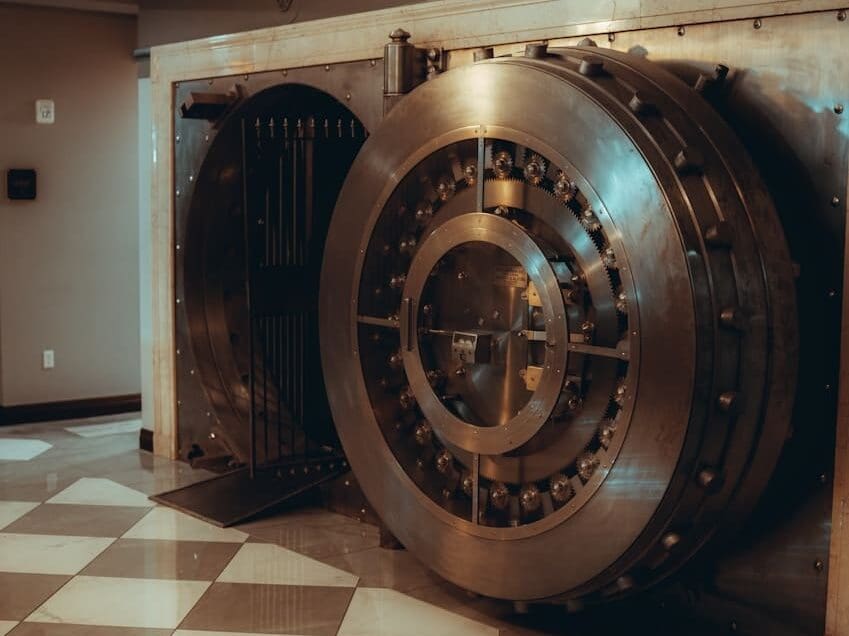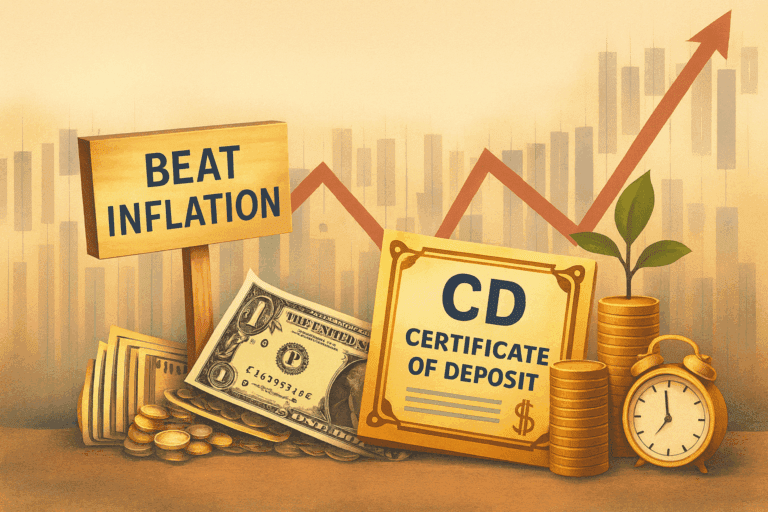Certificates of deposit, more commonly known as CDs, are a type of financial product that offers a very stable return on your investment. But are they a good place to store your savings? What are their pros and cons? Let’s break them down.
Certificates of Deposit

Simply put, CDs are longer-term investments you access through a bank. They’re not unlike bonds in that you put money in for a preset period, get a specific interest rate of return, and then get your money back. The trade off for this stability is that you can’t access your money for that period of time.
They’re Safe

Unlike investing on the stock market, investing with a CD is completely safe. The US government backs CDs up to $250,000, and, to date, no one has lost any money on a CD investment. Even if the bank holding your CD shuts down before the term is up, you’ll get all of your money back from the government.
(Comparatively) Excellent Interest Rate

Considering how safe CDs are, their average interest rates are very high. They’re significantly higher than the average interest rate of a savings account, making them great for longer-term savings. They also mature much faster than a retirement account, making them basically mid-term savings.
Predictability

CDs offer something very few other financial products can offer: they’re predictable. The stock market is infamously capricious, making guaranteed returns on investment literally unheard of there. CDs, on the other hand, are literally guaranteed by the government, so you can rest assured that you’ll get an exact amount of interest back on your investment.
Set Windows of Deposit

In addition to a predictable return, you’ll also know exactly how long your money will be tied up. This is very helpful because you can plan things like vacations or big purchases around the maturation of your CDs with complete confidence that you’ll have enough money when the day comes.
Extremely Flexible Terms

There are CDs of varying terms from only a few months to as long as five years. In some extreme cases, there are even CDs that last only a month and some that can go as long as ten years. This makes it easy to find a CD that’s perfectly suited to your savings goals. Naturally, the length of time impacts the product’s interest rate.
Accessibility?

Some CDs even allow for investors to close them early for no penalty. They, of course, won’t be able to access the interest the money would have generated for them, but sometimes this flexibility is worth it. In other cases, though, the money is completely inaccessible during the term of the CD.
“Laddering” CDs

Some investors prefer to “ladder” CDs, which means they open an array of CDs simultaneously with different maturation rates. This allows them to have a slew of investments open simultaneously and draw funds periodically as they come of age. They can then continue this process, reinvesting higher amounts of money into new CDs each time another one matures.
Drawbacks

There are a handful of drawbacks to CDs. Firstly, many have early withdrawal fees, making them impractical for short-term saving. Additionally, if the inflation rate is too high, it could actually outstrip the CDs’ interest rate. Finally, CDs are relatively low return when compared to assets like stocks and exchange-traded funds, but those are much riskier by comparison.
Read More: Is Investing in the Stock Market Confusing?
Bottom Line

If you’re looking for an extremely stable way to save money, CDs can be perfect for your financial needs. They’re not flashy and offer no chance for huge returns like stocks and ETFs, but they’re also much more rewarding than savings accounts. Depending on your financial goals, CDs could be ideal for you.
Read More: Investing Basics You SHOULD Already Know








